Sunset
Blvd.
1950
Director: Billy Wilder
Starring: Gloria Swanson, William
Holden, Erich von Stroheim
Is
Sunset
Blvd. the most brutally lacerating film made by Hollywood ABOUT
Hollywood? Possibly. I’m sure, dear readers, that now I’ve said
that, you’ve got at least five other films you’re thinking of to prove me
wrong, but you’ve got to admit that Sunset Blvd. is an absolutely
eviscerating portrait of the filmmaking industry. And Christ, I love it.
Famously
opening with a shot of his dead body floating in a swimming pool, the story is
that of Joe Gillis (Holden), a down on his luck screenwriter in Los Angeles who
narrates the story of how he wound up dead.
In an effort to evade the repo men, he drives his car one day into the
garage of aging silent film star Norma Desmond (Swanson). Desmond is more than a little eccentric, what
with the funeral for her dead monkey, her frankly creepy butler (von Stroheim),
and her ridiculously narcissistic view of the world around her (“I am big! It’s the pictures that got small!”). She soon ensnares Joe, turning him into a
kept man, and Joe goes along with it for awhile, and the two plan Norma’s
comeback (“I hate that word! It’s a
return!”). But Joe can’t live like this
forever.
There
have been plenty of movies made by Hollywood about Hollywood, but Wilder ups
the ante on nearly all of them by not bothering to disguise his characters as
caricatures. Oh no, he uses real names,
like Zanuck, Ty Power, and “We’re always looking for a Betty Hutton,” and
references real films (“You’d have turned down Gone with the Wind!” “No
that was me. I said ‘who wants to see a
Civil War picture.’”), and even uses real studios, with most of the action
taking place at Paramount, with references to Twentieth Century Fox as
well. Even the main characters in the
film are thinly veiled references to the actors who portray them. William Holden had indeed been pretty hot in
Hollywood, but not for some time. He was
certainly down on his luck, and had to convince Wilder to give him a
chance. Gloria Swanson was indeed a
silent film star who had not transitioned at all to sound. Even Erich von Stroheim was playing a version
of himself, a former silent film director.
Sure, Holden doesn’t really behave like Joe Gillis, and I’m certain
Gloria Swanson wasn’t nearly as crazy as Norma Desmond, but the point is
there. Sunset Blvd. isn’t nearly
so much an allegory as a straight up “true crimes” story about the dirty
business that is Hollywood. I love that
about this film. I don’t have to try to
guess who each character is supposed to represent, as in the also very good The
Bad and the Beautiful, because realistically, everyone is playing
themselves, right down to the waxworks of Buster Keaton and Anna Q. Nilsson.
Of
all the crazies in Sunset Blvd., it is actually the main character, that of Joe,
who most fascinates me. Clearly, we are
meant to sympathize at the outset with Joe, as Norma is, frankly, batshit crazy
and does everything in her power to keep Joe within her talon clutches. But the thing is, Joe isn’t exactly the most
sympathetic character in the world. In
fact, he’s kind of a dick. He acquiesces
far too easily to be “kept” by Norma, and he rather shamelessly takes advantage
of her wealth. Sure, you can tell that
he’s lost respect for himself when he accepts her expensive gifts or favors,
but that doesn’t stop him from accepting them.
Just as much as Norma is using him to help her get back into show
business, Joe is using Norma. It’s an
equally parasitic relationship. This is
evident most especially when we are introduced to Betty Schaeffer, a young,
pretty script reader at Paramount who Joe eventually starts to work with and
develop feelings for. The best, most
noble move that Joe makes in the film is when he shows Betty exactly how far
he’s fallen and how much he hates himself.
Joe and Betty’s blossoming romance would never work; he’s too far down
the rabbit hole with Norma to make an honest go of it with someone as righteous
as Betty, and by bitterly showing Betty his rather ugly side, he pushes her out
of his life. The fact that this is the
“nicest” thing Joe does in the film is what makes me easily conclude that Sunset
Blvd. is a film noir. Noirs all
have a fatally flawed hero, someone who is good but can’t help himself when it
comes to one thing; money, or maybe women, or maybe power. For Joe, his fatal flaw is clearly
luxury. He can’t help himself but leach
off of Norma when given the opportunity.
As much as we are meant to sympathize with Joe getting trapped by crazy
Norma, by the end of the film, Wilder has, rather cleverly, slightly turned the
tables on us. Joe is hardly a hero, and
Norma actually becomes a bit sympathetic.
For as crazy as Norma is, for as much as Joe complains about being
“caught” by her, he is just as much to blame for his downfall.
Practically
a character in the film in and of itself is Norma Desmond’s estate. A ridiculous portrait of grotesquerie, Joe
Gillis equates it with the house in Great Expectations when he first
walks up to it, and the comparison is fitting.
While not quite as full with cobwebs and decay as Miss Haversham’s, it
certainly exhibits the same sort of mood.
In Great Expectations, Miss Haversham ensnares Pip and
manipulates him, and we have the same sort of relationship between Norma
Desmond and Joe. The fact that this is
played out in Sunset Blvd. against a background so stuffed to the gills with
ornate, ludicrous luxuries makes the whole story feel unseemly. You don’t need dirt and grime to make a story
feel sordid, oh no. The set is almost
claustrophobic despite the vast expanse of the mansion because no matter where
you look, there is some gaudy monstrosity of furniture leaning into the shot,
crowding the scene. It all feels so… so…
creepy. Wrong. Unnatural.
Which is to say, absolutely perfect for the story at hand.
Honestly,
it should go without saying that the script to Sunset Blvd. is
sparkling; just look at how many quotes I’ve already included in this review,
and I don’t find myself normally including quotes. Billy Wilder is famous for his screenplays,
and when you hear the amazing turns of phrases in this film, it’s easy to
understand why. The great thing about
Wilder’s films is that it’s not just great lines, but great lines combined with
great stories. The lines themselves are
powerful and potent on their own (“All right, Mr. DeMille, I’m ready for my
closeup”), but when you see them in the context of the story, they’re even
better.
Back
in my biochemistry grad school days, I had to write plenty of rather wretched
research proposals and committee meeting reports. I remember holing myself up in the basement
of the house we were house-sitting in at the time, and putting in either Double
Indemnity or Sunset Blvd. (funnily enough, both
by Wilder) and putting them on repeat while I eked out the reports on the
computer. It was here, during this
fairly crappy time in my life that I learned to love film noir. It was having these films on repeat, over and
over, where I fell in love with the dialogue and the music and the characters
and the themes. I’ve seen Sunset
Blvd. more times than I can count, and as sappy as this may sound, I’m
glad this movie is a part of my life.
Arbitrary
Rating: 9/10.
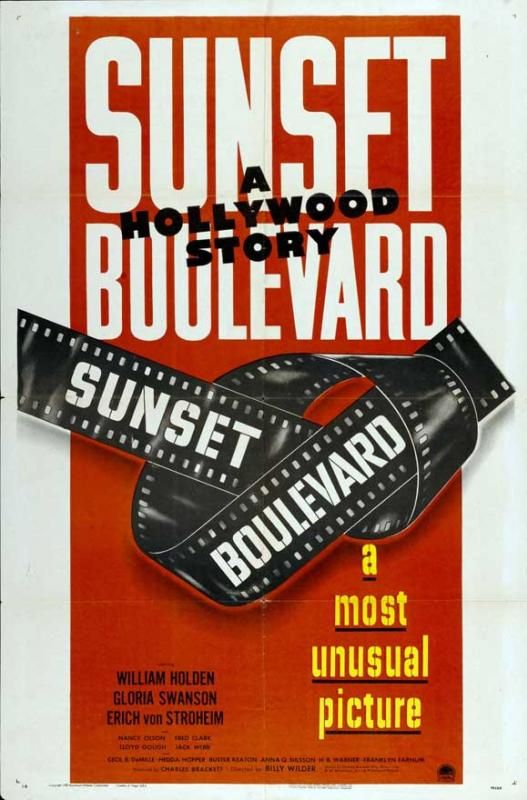
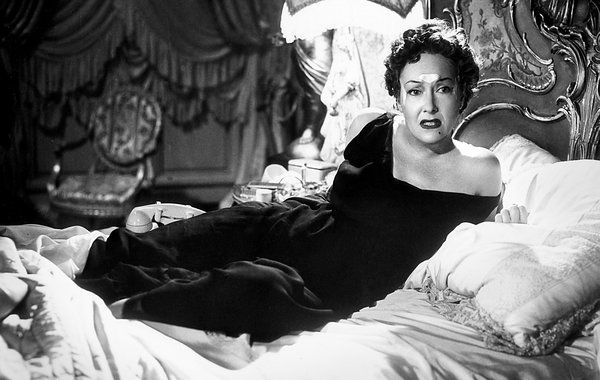
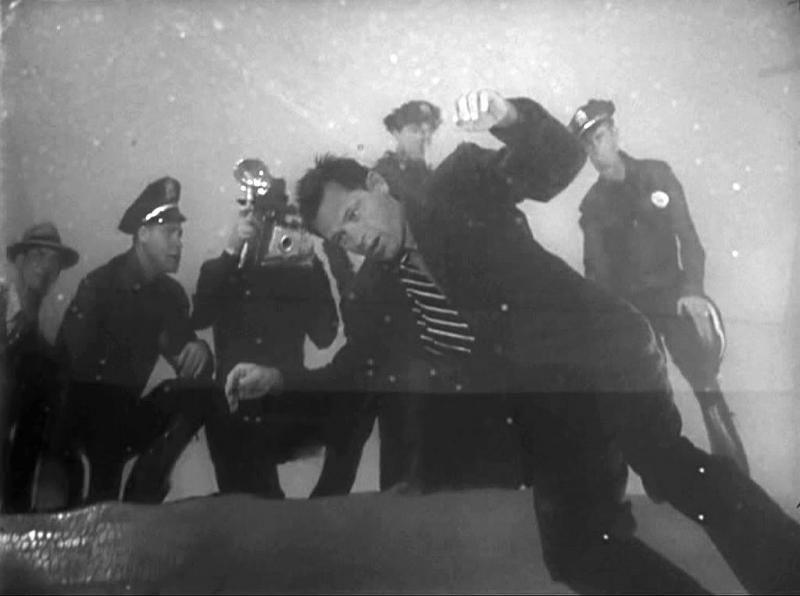
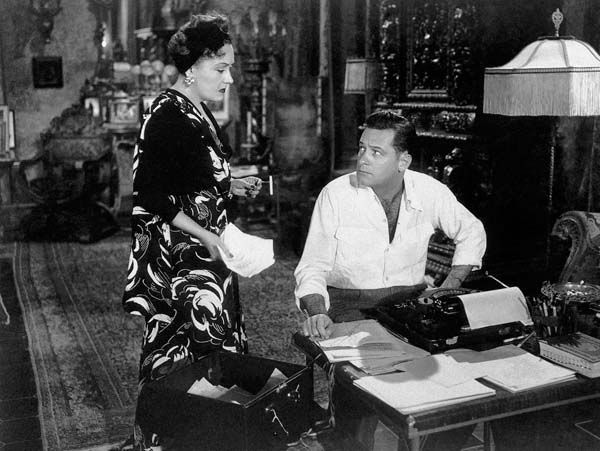
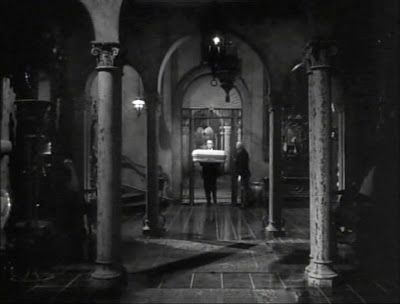
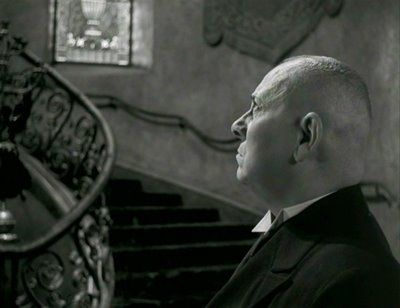
Not sappy at all. This is a fantastic film, start to finish. How great is Gloria Swanson in this? How memorable is her dialogue? "It's the pictures that got small." "We didn't need dialogue; we had faces!"
ReplyDeleteDamn, but I do love everything about this one. I like to watch this once a year. I never get tired of it.
It's definitely a great film to visit and revisit, as there's always something to see or hear or appreciate. Gloria Swanson is amazing, and I didn't even really talk about her! This film hinges on her incredibly brave and totally out there performance.
Delete"It’s an equally parasitic relationship."
ReplyDeleteI completely agree. This is one of the first films I ever reviewed (as part of my Movies Narrated by Dead People category) and one of the commenters said that they felt that he was the villain, not her. I countered that both were using the other for their own purposes and that neither was very likable.
I saw this many years ago. I should watch it again now that I have seen more of the older films that this one would have been referencing.
I had honestly forgotten how villainous, to use your word, Joe really is in this movie until I watched it again, but I definitely agree with that point.
DeleteIt's such a great flick, and so amazingly referential of The Biz.
Now I want to go back and find your Movies Narrated By Dead People list again.
Here is my parent post for that category: http://www.tipsfromchip.blogspot.com/2011/01/movies-narrated-by-dead-people.html
Delete